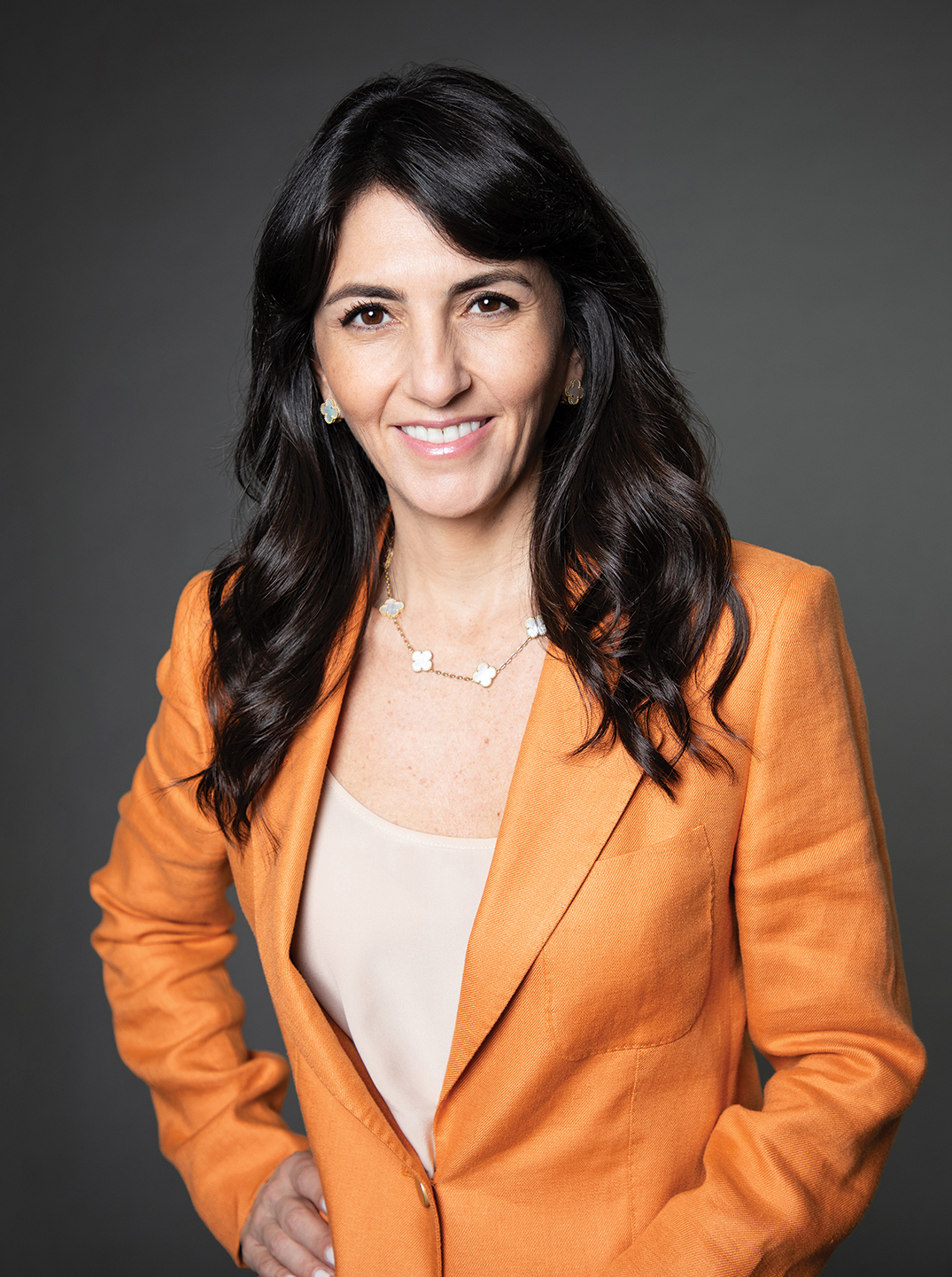Financial Planning and Investing: Women Closing the Confidence Gap
Since the start of the pandemic, women have become more involved in their financial futures.


Profit and prosper with the best of Kiplinger's advice on investing, taxes, retirement, personal finance and much more. Delivered daily. Enter your email in the box and click Sign Me Up.
You are now subscribed
Your newsletter sign-up was successful
Want to add more newsletters?

Delivered daily
Kiplinger Today
Profit and prosper with the best of Kiplinger's advice on investing, taxes, retirement, personal finance and much more delivered daily. Smart money moves start here.

Sent five days a week
Kiplinger A Step Ahead
Get practical help to make better financial decisions in your everyday life, from spending to savings on top deals.

Delivered daily
Kiplinger Closing Bell
Get today's biggest financial and investing headlines delivered to your inbox every day the U.S. stock market is open.

Sent twice a week
Kiplinger Adviser Intel
Financial pros across the country share best practices and fresh tactics to preserve and grow your wealth.

Delivered weekly
Kiplinger Tax Tips
Trim your federal and state tax bills with practical tax-planning and tax-cutting strategies.

Sent twice a week
Kiplinger Retirement Tips
Your twice-a-week guide to planning and enjoying a financially secure and richly rewarding retirement

Sent bimonthly.
Kiplinger Adviser Angle
Insights for advisers, wealth managers and other financial professionals.

Sent twice a week
Kiplinger Investing Weekly
Your twice-a-week roundup of promising stocks, funds, companies and industries you should consider, ones you should avoid, and why.

Sent weekly for six weeks
Kiplinger Invest for Retirement
Your step-by-step six-part series on how to invest for retirement, from devising a successful strategy to exactly which investments to choose.
When it comes to personal finance, at least one good thing has come out of the pandemic: Women are becoming more focused on their financial futures. In Own Your Worth 2020, a survey on women and money from UBS, 63% of women said that COVID has affected how they think about money, and they’re more likely to discuss issues such as financial reviews and investing with their spouses and children. In a study by Fidelity Investments, 67% of women interviewed said they are more engaged in managing their money and have expanded their efforts to help shore up their finances. And attendance is up at women’s investing events on Meetup, the online networking site, with 150 groups focusing on women and investing.
That could represent the start of a major shift. Over the years, there has been a persistent confidence gap between men and women when it comes to investing. The UBS study found that half of married women still defer to their spouses when it comes to long-term planning and investing. That applies to women of all ages, education and income levels. And single women feel less confident about making long-term financial decisions than single men.
In addition, a big chunk of the investments women have is concentrated in retirement accounts.
From just $107.88 $24.99 for Kiplinger Personal Finance
Become a smarter, better informed investor. Subscribe from just $107.88 $24.99, plus get up to 4 Special Issues

Sign up for Kiplinger’s Free Newsletters
Profit and prosper with the best of expert advice on investing, taxes, retirement, personal finance and more - straight to your e-mail.
Profit and prosper with the best of expert advice - straight to your e-mail.
Why the gap? Besides the confidence factor, a number of reasons have been suggested to explain the gap. “When you ask women why they defer to their spouses, they cite things like entrenched roles within the family, a desire to keep peace in the relationship and a belief that their spouse knows more,” says Julie Fox of UBS Private Wealth Management.
How do you help women feel more comfortable? “I start by telling women how investing, rather than just saving, can help them reach their goals, and what they can do with money as they grow wealth,” says Erin Lowry, author of Broke Millennial Takes on Investing. Fox advises starting with small steps. “Just having a financial discussion with your spouse or being at the table with an adviser is helpful,” she says.
Gerri Walsh, president of the Finra Foundation, says there appears to be a connection between confidence and knowledge, so beefing up financial education plays a key role (you’ll find tools and resources at finra.org/investors). Walsh says hands-on learning, videos and workplace financial education are particularly effective. (Fidelity sponsors a workplace-based program called Women Talk Money.) And having a coach can change behavior, she says.
Based on what I hear from my readers, it often helps if that coach is another woman. “Some financially savvy friends gave me the name of a female adviser, and I’ve been happy ever since,” writes Lynne Derry. “I am happy with a balanced portfolio, and now I have a few friends to talk to about investments.”
Maureen Larkin was introduced to the world of money by a woman she met at her second adult job. Fast forward 30 years, and Larkin is “very confident and secure managing all our family finances and investments,” she says. “And I’m doing a dang good job of it.”
Profit and prosper with the best of Kiplinger's advice on investing, taxes, retirement, personal finance and much more. Delivered daily. Enter your email in the box and click Sign Me Up.

Janet Bodnar is editor-at-large of Kiplinger's Personal Finance, a position she assumed after retiring as editor of the magazine after eight years at the helm. She is a nationally recognized expert on the subjects of women and money, children's and family finances, and financial literacy. She is the author of two books, Money Smart Women and Raising Money Smart Kids. As editor-at-large, she writes two popular columns for Kiplinger, "Money Smart Women" and "Living in Retirement." Bodnar is a graduate of St. Bonaventure University and is a member of its Board of Trustees. She received her master's degree from Columbia University, where she was also a Knight-Bagehot Fellow in Business and Economics Journalism.
-
 Nasdaq Leads a Rocky Risk-On Rally: Stock Market Today
Nasdaq Leads a Rocky Risk-On Rally: Stock Market TodayAnother worrying bout of late-session weakness couldn't take down the main equity indexes on Wednesday.
-
 Quiz: Do You Know How to Avoid the "Medigap Trap?"
Quiz: Do You Know How to Avoid the "Medigap Trap?"Quiz Test your basic knowledge of the "Medigap Trap" in our quick quiz.
-
 5 Top Tax-Efficient Mutual Funds for Smarter Investing
5 Top Tax-Efficient Mutual Funds for Smarter InvestingMutual funds are many things, but "tax-friendly" usually isn't one of them. These are the exceptions.
-
 The Most Tax-Friendly States for Investing in 2025 (Hint: There Are Two)
The Most Tax-Friendly States for Investing in 2025 (Hint: There Are Two)State Taxes Living in one of these places could lower your 2025 investment taxes — especially if you invest in real estate.
-
 How Women Can Turn a Gray Divorce Into a Financial Win
How Women Can Turn a Gray Divorce Into a Financial WinGetting divorced later in life can be a big financial blow, especially for women. But, as this financial adviser points out, it can also serve as a positive turning point for growth and independence.
-
 UBS Global's Solita Marcelli: It's a Green Light for U.S. Stocks in 2025
UBS Global's Solita Marcelli: It's a Green Light for U.S. Stocks in 2025A strong economy, rate cuts and continued AI spending should support stocks in the new year, says UBS Global's chief investment officer, Americas.
-
 Bond Basics: Zero-Coupon Bonds
Bond Basics: Zero-Coupon Bondsinvesting These investments are attractive only to a select few. Find out if they're right for you.
-
 Bond Basics: How to Reduce the Risks
Bond Basics: How to Reduce the Risksinvesting Bonds have risks you won't find in other types of investments. Find out how to spot risky bonds and how to avoid them.
-
 What's the Difference Between a Bond's Price and Value?
What's the Difference Between a Bond's Price and Value?bonds Bonds are complex. Learning about how to trade them is as important as why to trade them.
-
 Bond Basics: U.S. Agency Bonds
Bond Basics: U.S. Agency Bondsinvesting These investments are close enough to government bonds in terms of safety, but make sure you're aware of the risks.
-
 Bond Ratings and What They Mean
Bond Ratings and What They Meaninvesting Bond ratings measure the creditworthiness of your bond issuer. Understanding bond ratings can help you limit your risk and maximize your yield.